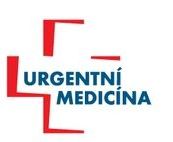INTRODUCTION
- Contents
- Editorial – Jana Šeblová
EMERGENCY DEPARTMENTS
- Urological Emergencies – Pavel Navrátil, David Astapenko
- Hemophagotic lymphohistiocytosis – Jitka Horská
PAEDIATRICS IN EMERGENCY MEDICINE
- Empirical oral antibiotic therapy for the most common acute community-acquired bacterial infections inchildren – Marek Štefan, Jindřich Havránek, Markéta Petrželová, Jitka Gambacorta, Markéta Kulakowská,Šárka Nováková, Dagmar Dolinská, Antónia Modráková, Alena Valko, Otakar Nyč, Jana Tejnická, Jakub Zieg,Petra Dytrych, Milan Trojánek, Jitka Müllerová-Dissou
EDUCATION
- The minimal standard of adaptation process of paramedics at Emergency Medical Services – David Peřan,
Petr Jaššo, Vladimír Husárek
ETHICS, PSYCHOLOGY, LAW
- Decision-making in lack of resources in the health care system during catastrophes – Jana Šeblová
- The last reflection on importance and history of proividing first aid – Jiří Štětina, Erika Matějková
DISCUSSION, OPINION
- The view of a retired man: „There is something wrong when nobody complaints!“ – Pavel Urbánek
- Answer of a retired women: „If nobody complaints… The service is high-quality then?“ – Jana Šeblová
INFORMATION
- Doc. MUDr. Jarmila Drábková, CSc. died
ABSTRACTS
UROLOGICAL EMERGENCIES
Pavel Navrátil, David Astapenko
Abstract
Urological emergencies encompass a wide range of conditions including acute urinary retention, testicular torsion, penile fracture, Fournier‘s gangrene, and urosepsis. These conditions require rapid diagnosis and intervention to prevent serious complications and life threatening situations. Key diagnostic tools include patient history, physical examination, and imaging methods such as ultrasound and CT. Treatment ranges from conservative approaches to surgical procedures, depending on the severity of the condition. Prompt treatment, especially for conditions like testicular torsion or Fournier‘s gangrene, is crucial for minimizing the risk of permanent damage and preserving the function of affected organs.
Key words: urology – urinary retention – renal colic – urosepsis – penile fracture
HEMOPHAGOTIC LYMPHOHISTIOCYTOSIS
Jitka Horská
Abstract
This clinical case presents a young 32 year old male patient with hemophagocytic lymphohistiocytosis (HLH). Hemophagocytic lymphohistiocytosis (HLH) is a hyperinflammatory syndrome that often requires critical care support and remains difficult to diagnose. It is a life-threatening disease with acute process which can lead to multiple organ dysfunction syndrome (MODS) and death without rapid adequate treatment. In this case there was an early suspection of this disease at the beginning of the differential diagnosis, but it didn’t meet all the criteria, because not all the results of the tests were known and some of the special tests have not been done yet. Patient’s health condition was still worsening, so the specific therapy of hemofagocytic lymphohistiocytosis was started even the final diagnosis was not established. This decision was shown as right, because there was an immediate improvement of a health conditionby the patient who had a disorder of consciousness and sepsis with multiple organ dysfunction syndrome.
Key words: hemophagocytic lymphohistiocytosis (HLH) – fever of unknown origin – sepsis – multiple organ dysfunction syndrome (MODS)
EMPIRICAL ORAL ANTIBIOTIC THERAPY FOR THE MOST COMMON ACUTE COMMUNITY-ACQUIRED BACTERIAL INFECTIONS IN CHILDREN
Marek Štefan, Jindřich Havránek, Markéta Petrželová, Jitka Gambacorta, Markéta Kulakowská, Šárka
Nováková, Dagmar Dolinská, Antónia Modráková, Alena Valko, Otakar Nyč, Jana Tejnická, Jakub Zieg, Petra
Dytrych, Milan Trojánek, Jitka Müllerová-Dissou
Abstract
This article addresses the issue of empirical oral antibiotic therapy for the most common acute community-acquired bacterial infections in children, specifically tonsillitis, otitis media, sinusitis, pneumonia, cystitis, pyelonephritis, erysipelas, cellulitis, impetigo and erythema migrans. In addition to first-choice antibiotics, alternatives are providedin cases of antibiotic shortages or allergies. The recommendations also include magistral (compounded, pharmacist-prepared) for mulasfor selected antibiotics. The article further focuses on the AWaReclassification of antibiotics, which divides available antibiotics into three groups according to the risk of inducing bacterial resistance.
Key words: antibiotics – bacterial infections – selection pressure – allergy – AwaRe classification
DECISION-MAKING IN LACK OF RESOURCES IN THE HEALTH CARE SYSTEM DURING CATASTROPHES
Jana Šeblová
Abstract
The paper summarizes basic ethical principles used for triage inextreme lack of material and personnel resources during catastrophes. COVID-19 pandemics 2020–2023 was chosen as a reference event. The necessity to prioritize patients during some pandemic periods was one of the stressors and it was associated with negative impact on mental health of healthcare workers including moral injury, burnout syndrom and compassion fatique. Documents on triage available in the Czech Republic during critical phase of pandemicare analysed from the point of view of helathcare workers´ supportin decision-making.
Key words: multiple victim incidents – catastrophes – pandemic – triage – ethics – lack of resources
